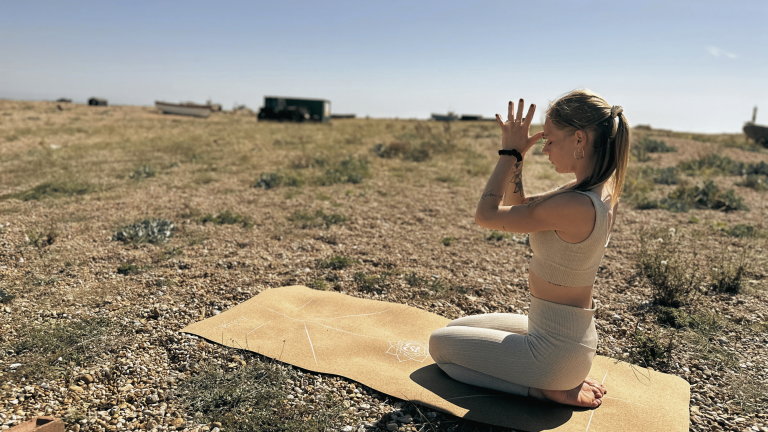Sleep Well: 7 Tips on How to Get Better Quality Sleep
We all want to sleep well, but getting enough sleep – and good quality sleep for that matter – is incredibly important for our health. In this article we will look at why sleep is so important and explore how to get better quality sleep by following seven simple tips to improve our sleep and sleep well.

The importance of sleep
Getting enough good quality sleep is important both for our physical and our mental health. All the body’s reparation processes happen when we sleep, which is why we should prioritise a healthy sleep schedule and give our body enough time to do what it’s meant to do. Here are some examples of why sleep is so essential for our health:
- Helps the body repair and regenerate
During sleep, the body produces new cells and tissues and repairs any damage that may have occurred during the day. This one is crucial. Insufficient sleep and time for the body to heal itself can lead to aggravated chronic health issues, including obesity, diabetes, and heart disease.
- Supports the immune system
Sleep helps to strengthen the immune system and increases the body’s ability to fight off infections and diseases. In alignment with the body needing to repair itself, a lack of sleep can lead to increased inflammation in the body, which causes illness and aggravates mental health issues, too.
- Aids in memory and learning:
Sleep is crucial for memory consolidation, which helps to retain and store new information and skills. Whether you’re studying for an exam, doing a yoga teacher training, or taking an online course, make sure to get enough sleep. Similarly, this is also one of the reasons we take savasana at the end of each yoga practice 🙏
- Supports emotional well-being:
Lack of sleep can lead to mood swings, irritability, and stress. Adequate sleep can improve mood and emotional regulation. Sleep is especially important if you’re struggling with depression, anxiety, or similar mental health issues because a lack of sleep can aggravate these symptoms, and it becomes a vicious circle.
- Helps with weight management:
Sleep deprivation can lead to hormonal imbalances, which can affect appetite and lead to overeating. When we feel tired, we tend to reach for high-energy foods, which are oftentimes not the healthiest option. High fat or sugar foods make us feel energetic and happier – but usually in the short term. In the long term, these foods can make us lethargic and can lead to overweight. Adequate sleep helps regulate hormones and supports healthy eating habits.
Since we’ve clearly established the importance of good sleep for all sorts of reasons, let’s dive into the how we can get better quality sleep, by following these easy, household tips.

7 tips on how to get better quality sleep
Let’s get down to business but let me first say that taking even two to three of these tips is already super great. Don’t feel like it’s all or nothing. Doing a little bit consistently will always triumph over doing something big but inconsistently.
They say that it takes 21 days to make or break a habit. So set yourself a goal of implementing any of these tips for at least three to four weeks. According to my own experience, the first days and week is usually easy due to the novelty factor. It’s around two to three weeks that the going gets tough.
Just remember why you started in the first place and remind yourself of the benefits a better quality sleep will have on your overall health. Making these little changes is a low price for the priceless benefits it brings.
So here are seven ways how you can get better quality sleep:
1) Lemon & salt
Nope, no tequila. But, seriously. A few slices of lemon sprinkled with salt on your bed side table can improve your sleep quality and help you wake up more relaxed. The essential oils fight off infections and reduce the likelihood of colds, while freeing the lungs to help you breathe better. Furthermore, the scent of the lemon triggers the release of serotonin – our happy hormone!
Tip: If you don’t want to use fresh lemon slices, try pure, lemon essential oils in a diffuser, for example. If lemon is just not your thing, try eucalyptus essential oils, or lavender. Eucalyptus has a refreshing effect and also helps you breathe deeper. Lavender is my personal favourite and an absolute go to for increased calmness. Whichever scent you choose, make sure the oils are 100% natural.
2) Dinner 2+ hours before bed
The last big meal of the day should be consumed at least two hours before you go to sleep. Going to sleep with a full stomach is not good for the body and digestion. Your body needs the sleep to repair, heal, and replenish itself. However, if it is busy using its energy to digest your dinner, it cannot focus on those important functions and your sleep quality will be disturbed.
A side note: going to bed a little hungry is not a bad thing. It’s like a mini fast, which can be quite healthy for your body! If you’ve ever tried intermittent fasting, you probably know. It’s especially beneficial for weight loss, and to give the body time and energy to focus on repairing itself.
3) Evening mindfulness
Instead of unwinding with your favourite Netflix show – yes, I get it, I do it too – try scheduling in about 10-15 minutes for a mindfulness practice before bed. This can be a guided meditation, journaling, or relaxing breathing exercises. The point of the practice is to draw the attention inward, consciously slow down, and rest our minds from external inputs right before bed.
Here are three quick options to get you started:
- Number One: Take 10 deep breaths in through the nose, hold the breath for 5 seconds, and exhale through the mouth. By focusing on the breath and the count, you can help your mind slow down and activate the parasympathetic nervous system for stress release.
- Number Two: Make a gratitude list by writing down (with pen and paper) three to five things you are grateful for in your day. Doing so shifts our focus toward the positive and can release negative thought patterns.
- Number Three: Practice these three Yin yoga poses and hold them for 20 breaths each: seated forward fold (paschimottanasana), seated butterfly (baddha konasana), and reclined butterfly (supta baddha konasana).
For more Mindfulness Practices and three meditations, get my free guide on Introduction to Mindfulness!

4) Avoid electronic devices
Yes, that includes your laptop and mobile. Too much external stimulation before bed can increase adrenaline levels and therefore anxiety and make it harder to fall asleep. The light of electronic devices further reduces your melatonin levels. Melatonin is a naturally produced chemical in the body that increases in the evenings and signals our bodies that we’re tired. With the morning light, melatonin in the body is reduced, so that we wake up. The light of electronic devices can hinder the production of melatonin and therefore make it harder to fall asleep and disturb our sleep cycles.
Little tip: try reading for five to ten minutes instead. Or choose one of the above mindfulness practices 🙂
5) No alcohol
This one should not come as a surprise, but I thought I’d include it anyway. Other than a good time, there are few benefits of alcohol, especially for your body. More so than food, your body will be busy dealing with breaking down and eliminating the basically toxic substance from your body. There’ll be little time to focus on the necessary healing of your body.
Alcohol in combination with food is another common habit that is best avoided. Since alcohol is considered a toxin for your body, your body will tend to this first, leaving the food undigested. Wherever possible, try to avoid alcohol but especially within three hours of bedtime.
The same actually goes for nicotine, too, and – as you might have guessed – coffee. Your last coffee should be consumed around noon. Have a tea instead! Yogi tea offers my favourite range of teas.
6) Exercise regularly
Regular exercise has many benefits of our health, physical and mental. Exercise reduces stress, increases our happy hormones, such as serotonin and dopamine, and allows us to utilise spare energy for something beneficial.
Nowadays, we spent too much time sitting, too little time being physically active in our day-to-day lives. However, we continue to eat and consume high-energy foods and drinks. Coupled with long To Do lists this can lead to nervous energy that manifests in stress and finds no adequate release.
Exercising is a beautiful way to rid ourselves of this nervous energy while doing something good for our bodies, too. The best exercise for stress release is around a 60% heart rate: this could be moderate cardio or strength training, or also yoga. Bear in mind to not exercise too intensely within three hours of bedtime, as this might have the opposite effect by making you more awake and alert 🙂
Give my easy 15 minute yoga flow a try! It’s easy to incorporate into your busy day and suitable for all levels.

7) Stick to a regular sleep schedule
And last, but not least, one important way of how to get better quality sleep is to stick to a regular sleep schedule. Going to bed and waking up at the same time every day can help regulate your body’s internal clock, leading to better sleep quality. Try to maintain a consistent sleep schedule, even on weekends, and avoid staying up late or sleeping in excessively.
To be honest, once you‘ve implemented a consistent sleep schedule, your body will do the rest for you! After years of waking up at 6 am, there is no keeping me awake past 10 pm anymore, not even on weekends 😉
I’d love to hear what you think and how these tips might have helped you! Sent me a quick e-mail to hello@findingsparkles.com or message me on Instagram @findingsparklesyoga. I look forward to hearing from you.
As always,
Keep sparkling ✨
Kim Carolina






